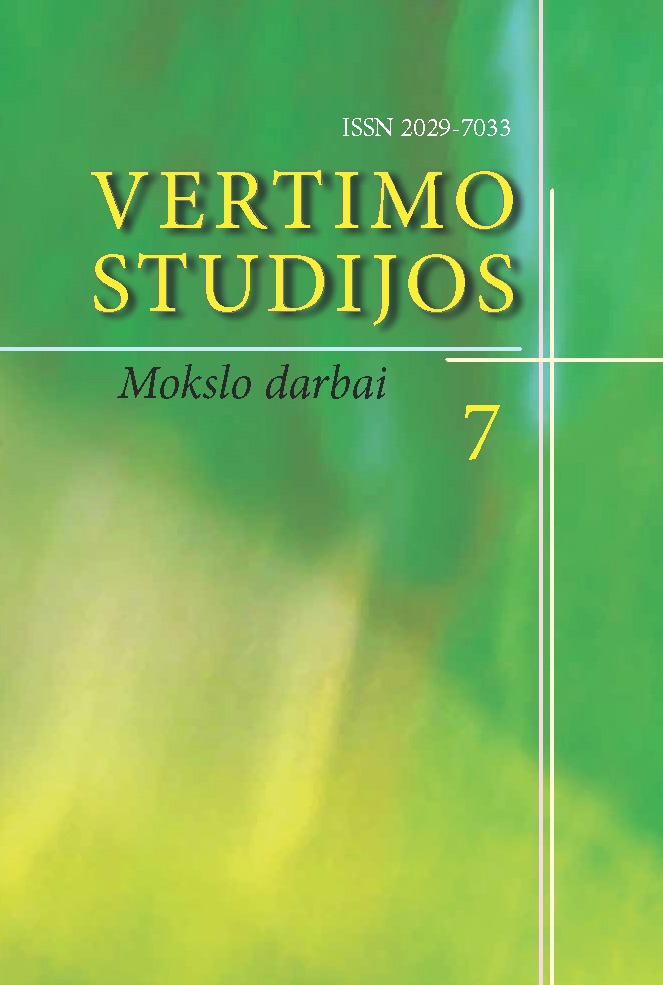TRANSLATION POLICIES IN LATVIA DURING THE GERMAN OCCUPATION
TRANSLATION POLICIES IN LATVIA DURING THE GERMAN OCCUPATION
Author(s): Andrejs VeisbergsSubject(s): WW II and following years (1940 - 1949), Translation Studies
Published by: Vilniaus Universiteto Leidykla
Keywords: Translation policy; Latvia; German occupation;
Summary/Abstract: The period of German occupation in Latvia came after twenty years of Latvian independence and a year of Soviet occupation. The shifts in the translation policies at these critical junctions were incredibly fast. The independence period was marked by a developed translation industry, a variety of the source languages, a variety of kinds of literature, with a broad scope in the quality of the translations. When the Soviets came, they quickly nationalized the publishers, ideologised the system and reshaped the pattern of what was translated. Russian was made the main source language, and other languages were minimized. The share of ideological literature grew exponentially, reaching one third of all books. Soon after the German invasion, the publishers regained their printing houses and publishing was renewed. The percentage of translations was similar to that of the independence period, with German literature making up 70% of the source texts. Most of the other source texts were Nordic and Estonian. Translation quality of fiction was generally high and the print runs grew. There are surprisingly few ideologically motivated translations.
Journal: Vertimo studijos
- Issue Year: 7/2014
- Issue No: 7
- Page Range: 31-44
- Page Count: 14
- Language: English

